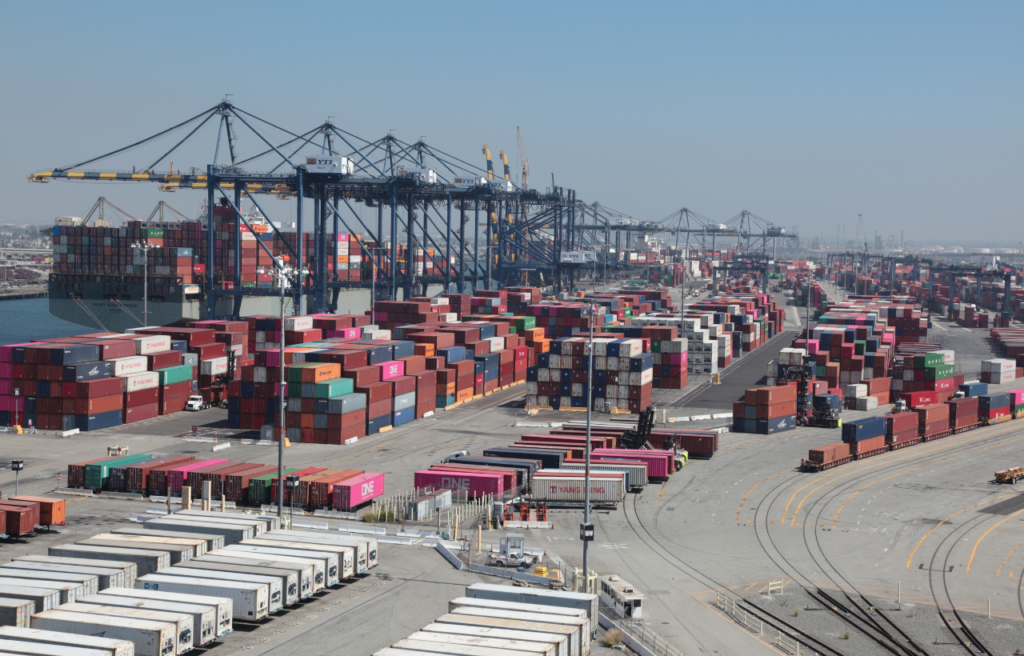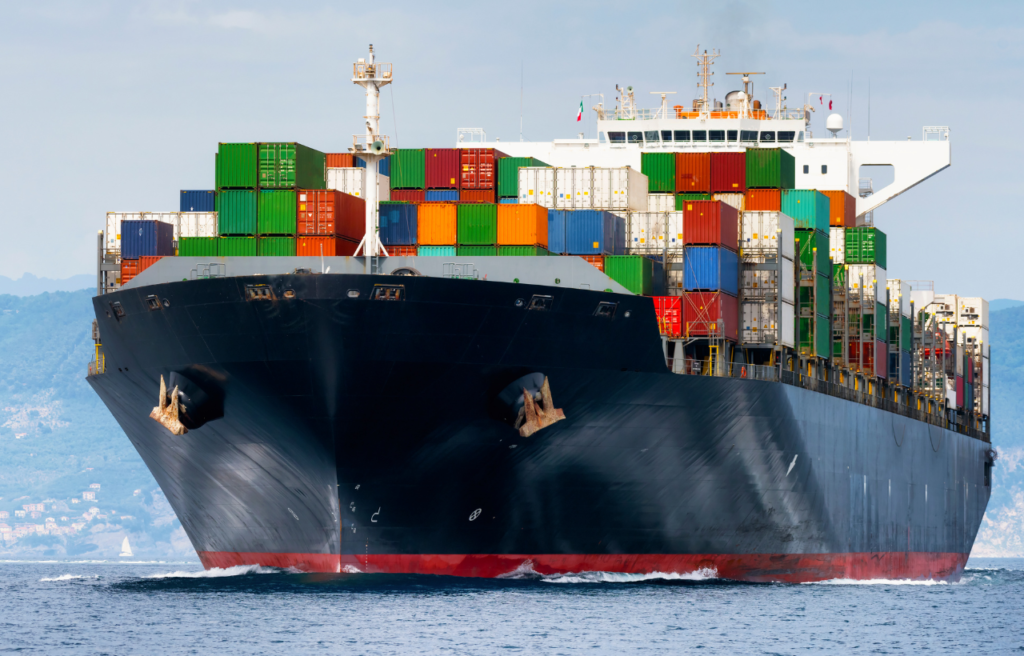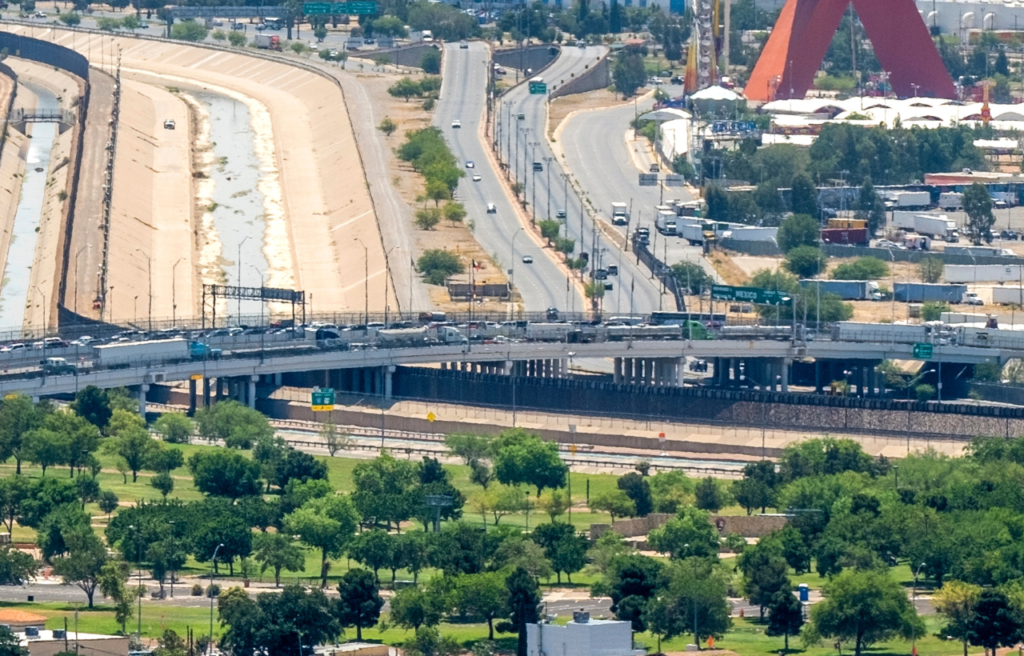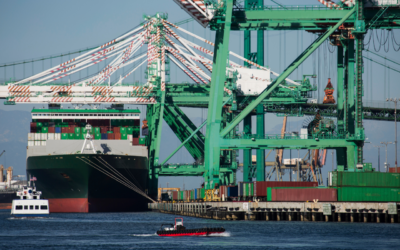1. Cargo Diversions To West Coast Have Started, LA Port Director Confirms

In recent developments, the Port of Los Angeles has observed a notable shift in cargo routes, with shippers increasingly rerouting their cargo to the West Coast. This strategic decision comes as a response to a combination of security concerns in the Red Sea and the impact of drought-related issues at the Panama Canal. Despite not experiencing a surge in freight, the port has marked January as its second busiest month on record, a clear indication of the growing preference for West Coast ports among shippers. This trend is partly driven by retailers actively replenishing inventories ahead of the Lunar New Year closures, coupled with positive economic indicators suggesting sustained spending by American households.
The pivot towards West Coast ports, particularly the Port of Los Angeles, signifies a shift in global logistics strategies, influenced by geopolitical conflicts and environmental challenges. Importers, in their quest to ensure timely delivery of goods amidst these uncertainties, are willing to navigate higher rates, a move that reflects the dynamic nature of global trade and supply chain management. This adaptation to changing global circumstances underscores the resilience and flexibility of the logistics sector, as it seeks to minimize disruptions and maintain efficient operations.
As the logistics landscape continues to evolve with these shifts in cargo routing, MTA is poised to assist businesses in navigating these changes effectively. Our expertise and strategic presence on the West Coast position us uniquely to support your logistics needs, ensuring that your cargo is handled efficiently and with the care it deserves. Reach out to MTA today to explore how we can enhance your supply chain resilience and adaptability in these changing times.
Above is our summary that captures the highlights in order to save you time, but you can read the full article on SupplyChainDive
2. Import Demand Growth Robust Leading Into Lunar New Year

In the lead-up to the Lunar New Year, the logistics sector experienced a significant uptick in import demand, marking a departure from the previous year’s minimal increases attributed to pandemic-related inventory surpluses. Freight bookings for the top four U.S. port complexes surged, especially from China, indicating a robust growth in import demand. This notable shift in the supply chain landscape was driven by a combination of factors, including geopolitical tensions and disruptions, such as the conflict in the Red Sea and drought conditions affecting the Panama Canal. Retailers, in anticipation of the holiday closures and in response to positive economic indicators, have been actively replenishing their inventories, contributing to this surge in demand.
The rise in import demand, particularly in Southern California ports, has had a significant impact on the logistics and shipping industry. Importers, facing the challenges posed by these geopolitical and environmental disruptions, have shown a willingness to pay higher rates to ensure the timely delivery of goods. This trend underscores the evolving dynamics of global trade and the strategic adjustments businesses are making to navigate these complexities. The willingness of importers to absorb higher costs highlights the critical importance of maintaining supply chain fluidity and responsiveness in the face of unpredictable global events.
Above is our summary that captures the highlights in order to save you time, but you can read the full article on FreightWaves
3. Freight Shipments And Expenditures See January Declines, Notes Cass Freight Index

The January edition of the Cass Freight Index, a trusted source for insights into freight trends and expenditures, has highlighted a downturn in the logistics sector at the start of the year. According to the report, both freight shipments and expenditures witnessed declines, with shipments falling 7.6% annually and expenditures dropping by a substantial 24.3%. These trends continue the pattern observed in previous months, signifying a cooling period within the freight industry. Despite these declines, the report suggests that the downturn in freight movements aligns with normal seasonal fluctuations, offering a potential silver lining with expectations for a gradual improvement in freight trends.
The downturn in freight shipments and expenditures as reported by the Cass Freight Index raises critical considerations for the logistics and shipping industry. ACT Research, interpreting the data, suggests that the current freight market dynamics, including the decline in expenditures, may be nearing an end. The anticipation of a recovery in freight demand fundamentals in 2024 provides a glimpse of optimism amidst the prevailing downturn. This perspective is crucial for logistics companies and shippers alike, as it offers valuable insights into future market trends and the potential for strategic adjustments in response to evolving freight demand.
MTA is closely monitoring these developments within the freight industry, leveraging insights from multiple reputable sources, including the Cass Freight Index.
Above is our summary that captures the highlights in order to save you time, but you can read the full update HERE
4. Rising Inflation Driving Food Supply Chain Robberies

The global supply chain is facing a new challenge as rising inflation has led to an increase in food supply chain robberies, according to a report by the British Standards Institution (BSI). In 2023, food theft accounted for a third of all hijacking incidents, marking a 29% increase compared to the previous year. The surge in these incidents is attributed to thieves targeting basic goods that have experienced significant price hikes due to inflation. Food and beverage items now represent 22% of overall thefts, with agricultural products making up another 10%. This shift in criminal focus towards food-related goods highlights the broader economic pressures impacting supply chain security.
The increase in robberies has been particularly noted in regions where secure truck parking is scarce, making containers and trailers vulnerable to theft. The road haulage sectors in Europe have been especially affected, pointing to a pressing need for enhanced security measures and strategies to protect the supply chain. The trend underscores the complexities businesses face in securing their logistics operations against emerging threats, which are compounded by economic factors such as inflation.
MTA understands the critical importance of protecting your supply chain against growing threats like supply chain robberies. In addition to our security strategies and measures, we also offer comprehensive insurance solutions tailored to safeguard your assets and mitigate risks. Contact us today to discuss how we can strengthen your supply chain security and provide peace of mind.
Above is our summary that captures the highlights in order to save you time, but you can read the full article HERE
5. Major Delays In Cross-Border Cargo Flow After Glitch In Mexican Customs System

The Mexican National Customs Agency (ANAM) recently experienced significant disruptions in its computer systems, leading to major delays in cross-border cargo flow. The glitches, which persisted over several days, severely affected the agency’s ability to process import and export documents electronically. As a result, ANAM had to operate in “contingency” mode, causing delays at ports and airports and disrupting freight movements across the U.S. border. This incident highlights the vulnerability of critical infrastructure to technological failures and its potential impact on international trade and logistics operations.
The computer system glitches at ANAM underscore the importance of robust digital infrastructure and contingency planning in customs and border management. The delays in cargo flow not only cause immediate logistical challenges but also have broader implications for supply chains relying on timely cross-border transportation. Industries and businesses dependent on smooth border operations have faced significant disruptions, emphasizing the need for resilient and flexible logistics solutions that can adapt to unexpected challenges.
MTA understands the critical importance of navigating cross-border logistics challenges efficiently, especially in light of recent disruptions like those experienced by ANAM. Our expertise and resources are geared towards providing seamless logistics solutions, even when facing unforeseen challenges such as technological glitches in customs systems. Reach out to MTA today to learn how our adaptive and robust logistics strategies can help mitigate the impact of cross-border delays on your supply chain.
Above is our summary that captures the highlights in order to save you time, but you can read the full article HERE
Impacts and MTAs’ Approach
In light of these developments, MTA is actively exploring a variety of strategic approaches:
- Exploring Enhancements to West Coast Operations: As cargo routes evolve, we’re looking into ways to strengthen our presence on the West Coast, aiming for improved handling and distribution where feasible.
- Adjusting to Import Demand Fluctuations: With an eye on fluctuating market demands, especially during critical periods like the Lunar New Year, our team is staying vigilant and aims to adapt our services to meet these changing needs as best as possible.
- Guided by Market Insights: The insights provided by tools like the Cass Freight Index are valuable in shaping our approach to navigating market trends. We’re using this information to better understand potential market changes and to consider strategies for addressing both downturns and recoveries.
- Focusing on Supply Chain Security: Given the rise in supply chain threats, we’re enhancing our focus on security. While advising clients on protective measures, we’re also revisiting our security protocols to address these concerns proactively.
- Addressing Cross-Border Delays: The challenges of cross-border logistics, especially in light of technological disruptions, are on our radar. Our team is committed to exploring solutions that could ease these delays, aiming for as smooth an operation as possible.
Our Commitment
MTA is dedicated to navigating these complex challenges, leveraging our expertise and resources to maintain the reliability and efficiency of your logistics needs. We remain steadfast in our commitment to Delivering First-Class Solutions, ensuring the continuity and adaptability of your supply chain operations.
Conclusion
The logistics landscape is ever-evolving, shaped by a myriad of global factors and local dynamics. February 2024 has been a testament to the industry’s resilience and our collective capacity to adapt and thrive. At MTA, we are more committed than ever to partnering with our clients through these challenges, ensuring a robust and responsive supply chain ecosystem.


